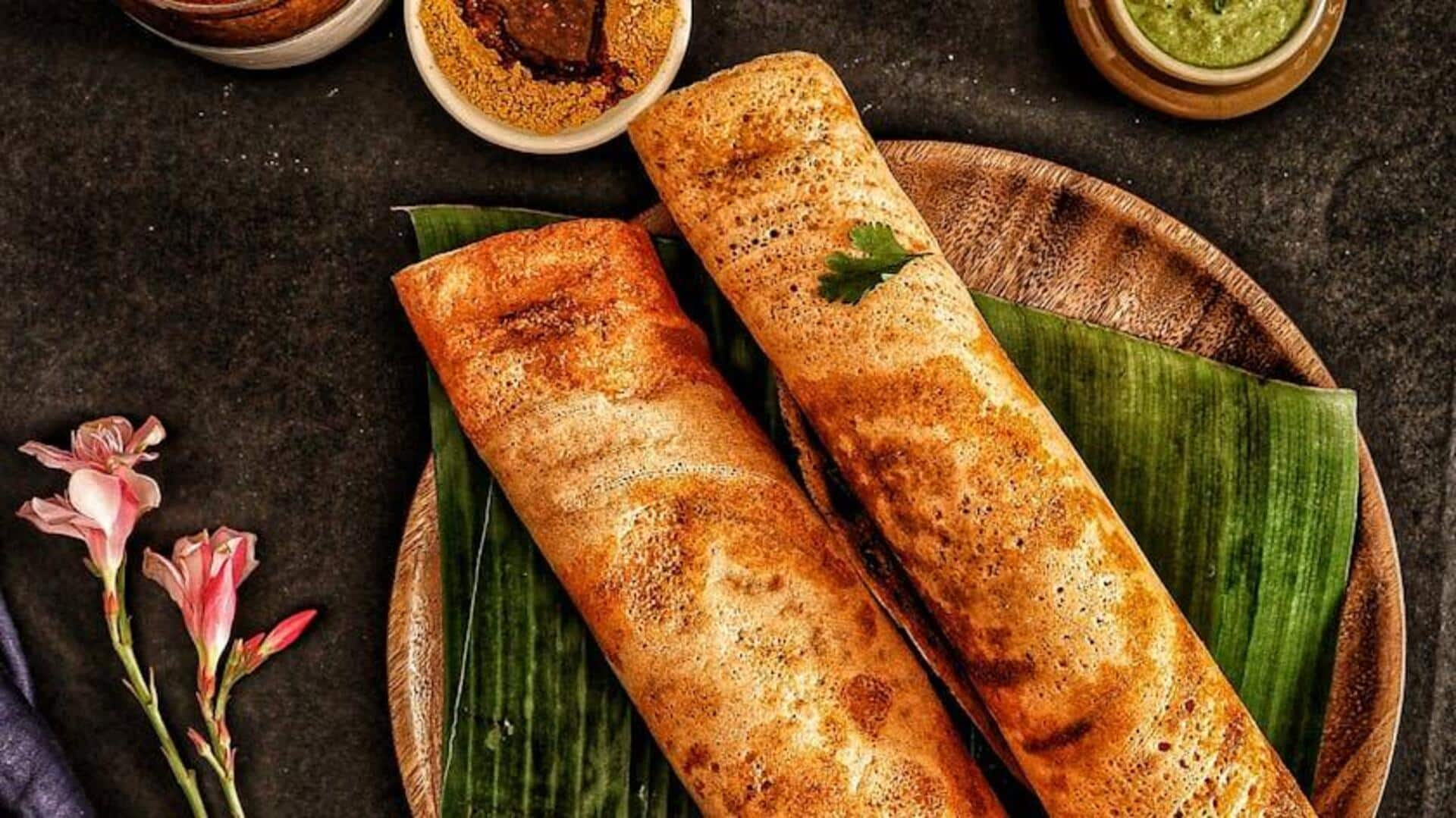
Dosa's evolution: History, nutrition, and variations
What's the story
Fermented dosa is a staple of South Indian cuisine, famous for its peculiar taste and health benefits. The traditional dish has been a household item in South India for generations, showcasing the region's rich food culture. Fermentation not only improves the taste but also makes dosa easier to digest, making it a favorite among health freaks. Let's explore the legacy and importance of fermented dosa in South India.
Origins
Historical roots and cultural significance
The history of dosa dates back to antiquity in South India. It is said the dish was first referenced in Tamil literature more than 1,000 years ago. Dosa has since transformed into different avatars in various parts of the country, with each having its own unique taste. Its cultural importance is also notable as it is prepared during festivals and special occasions, representing prosperity and tradition.
Health impact
Nutritional benefits of fermentation
Fermentation is key to increasing the nutritional value of dosa batter. The process increases the bioavailability of nutrients, such as vitamins B and C, while decreasing anti-nutrients, such as phytic acid. This makes fermented dosa easier to digest than non-fermented ones. It also aids gut health by stimulating beneficial bacteria growth, which improves overall well-being.
Regional variations
Varieties across regions
South India also has some of the most diverse varieties of dosas, each telling its own local story. In Karnataka, masala dosa with spicy potato filling is the crowd favorite, Tamil Nadu is famous for crispy paper dosas, Kerala's ghee roast dosas are legendary, and Andhra Pradesh has spicy pesarattu made from green gram. These regional adaptations underscore how cultures have embraced this versatile dish over time.
Contemporary trends
Modern adaptations and innovations
In recent years, we have seen an increase in innovative adaptations of traditional fermented dosas to suit the changing consumer preferences. Chefs experiment with ingredients like quinoa or millet instead of rice for a healthier option without compromising on taste or texture. Fusion versions with global flavors are also gaining popularity among younger generations looking for new culinary experiences while staying rooted.